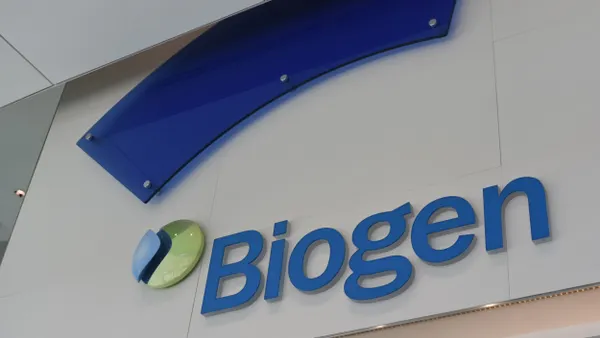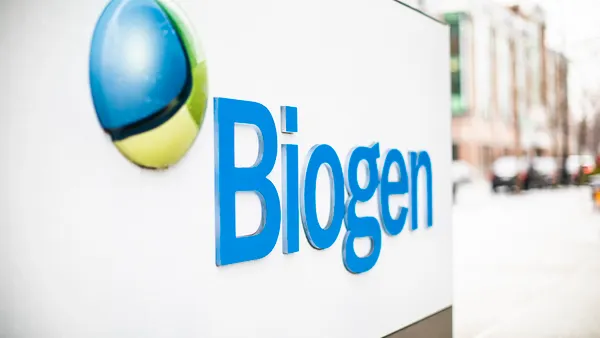Through a new deal, Novartis has added a handful of experimental gene therapies to its neuroscience research pipeline.
Novartis is betting the gene therapy tools developed by Kate Therapeutics, a biotechnology startup founded four years ago, can lead to treatments for an array of neuromuscular diseases. The Swiss pharmaceutical giant said Thursday it has acquired Kate, in a transaction that could ultimately be worth as much as $1.1 billion. Novartis did not disclose what it paid up front, but a source familiar with the deal told BioPharma Dive the sum was substantially greater than Kate’s Series A round last year.
In buying Kate, Novartis now owns a slate of preclinical gene therapies for rare, muscle-eroding diseases. The biotech’s two most advanced programs respectively target Duchenne muscular dystrophy and a condition known as X-linked myotubular myopathy. Astellas Pharma, one of the largest drugmakers is Japan, has been partnering on that latter program since Kate officially launched in June of last year.
Kate debuted with $51 million from that Series A fundraising round, which was co-led by its founder, Westlake Village Partners, and Versant Ventures. The company claims its technology — which stems from research conducted by a team of scientists at the Broad Institute of MIT and Harvard — can make gene therapies that are more precise and able to reach parts of the body they normally have trouble hitting, like the heart. Sharif Tabebordbar, who was the main author of that research, went on to co-found Kate and now serves as its chief scientific officer.
“We have been highly impressed with the rigor and potential of Kate’s science, and we are confident this acquisition will further enhance our ability to bring forward new therapeutic options for patients living with neuromuscular diseases,” said Fiona Marshall, Novartis’ president of biomedical research, in a statement.
Novartis already has experience in neuromuscular gene therapies, having launched Zolgensma, a blockbuster medicine for spinal muscular atrophy. Zolgensma had been given the “growth driver” moniker not too long ago, but sales of the drug haven’t been as strong recently. They totaled $1.2 billion in 2023, down 9% under constant currency exchange rates. And they were flat in the third quarter, at $308 million, compared to the same three-month period last year.
Sales from Novartis’ broader neuroscience business were still up 19% in the third quarter, thanks mostly to the multiple sclerosis medication Kesimpta.
The Kate acquisition comes almost a year and a half after Novartis agreed to buy DTx Pharma, a startup aiming to use RNA drugmaking technology to treat neurological diseases. The deal, which carried a $500 million upfront payment, handed Novartis a few experimental drugs that had yet to reach human testing.
DTx was one in a series of smaller-scale purchases Novartis made over the past couple years. The company snagged the radiopharmaceutical developer Mariana Oncology for $1 billion, the kidney disease drugmaker Chinook Therapeutics for as much as $3.5 billion, and the cancer specialist Morphosys for roughly $2.9 billion.
It also scored a portfolio of potential immune system drugs by buying a subsidiary of IFM Therapeutics for $90 million up front.
Ned Pagliarulo contributed reporting
Editor’s note: This story has been updated to further characterize the acquisition price Novartis paid for Kate.














